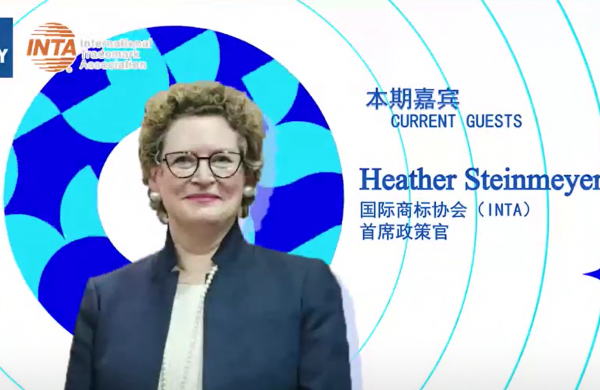Did not receive verification mail? Please confirm whether the mailbox is correct or not Re send mail

IPR Daily
- 2022-07-14 11:44:26
IP PEOPLE: Together For A Shared Future
On February 4, 2022, with the Olympic torch lighting up the "Bird's Nest", the much-anticipated 24th Winter Olympics kicked off, making Beijing the first city ever to host both the Summer and Winter Olympics. The arrival of athletes from 91 countries and regions added warmth and color to this spring with their Olympic mettle.
In June 2018, the Chinese government promulgated the newly amended Regulations on the Protection of Olympic Symbols. On October 15, 2021, the Special Action Plan on Intellectual Property Protection of the Olympic Symbols for the Beijing 2022 was published by the China National Intellectual Property Administration and the State Administration for Market Regulation. The IP Protection Program and the crackdown upon infringement are part of the efforts to secure the success of the winter extravaganza.
The curtain of Beijing 2022 has come down, yet our memory will stay forever under the Olympic Rings, where friends from all corners of the world gather and march for a shared future.
Antitrust

The year 2021 should be starred on the antitrust calendar of the Chinese government: A string of moves, from the ink spilled in the Government Work Report and revision of the Anti-monopoly Law to the penalty on tech giants and setup of the Anti-monopoly Bureau, packed quite a punch.
In March 2021, when referring to priorities for the year, Premier Li Keqiang reiterated battles against monopoly and disorderly expansion of capital for fair competition. In April 2021, Alibaba was imposed an astronomical fine of RMB 18 billion, the highest on record. Other companies such as Meituan, Tencent, JD.com, and Baidu also suffered huge losses over anti-competitive practices. On October 19, 2021, the Draft Amendment to the Anti-monopoly Law passed the first reading by the Standing Committee of the National People's Congress, and was published four days later. On November 18, 2021, the State Anti-Monopoly Bureau was inaugurated to further the national drive.
In 2021, we witnessed China's confidence and determination in fighting against monopolistic practices. At the beginning of 2022, the State Administration for Market Regulation issued 13 tickets for violation of the Anti-monopoly Law, with a number of Internet giants such as Tencent, Alibaba, and Bilibili on the list, marking the first big move against monopolies in the new year. Now, the question is—who's next in line?
Metaverse

Metaverse, a virtual world constructed with 5G/6G, VR/ AR, and AI technologies, has dominated the headlines of the Internet in 2021. Regarding it as the next chapter for Internet interaction, many world-renowned conglomerates, including ByteDance, Tencent, Meta, and Google, are extending their reach into the fields related to the metaverse, such as VR, short video, cloud platform, and gaming.
Notwithstanding its great potential, metaverse has heightened worries over data security, privacy, anti-trust, and IP. Will the creation of something in metaverse infringe upon real-world copyright? What role should the platform play in IP protection in the metaverse? Should patent laws be introduced into the metaverse? A barrage of questions goes on. We do not know where the metaverse is heading.
NFT

The discussion of metaverse has also brought the spotlight to NFTs, a niche concept that started to take off in 2021. NFTs, or Non-Fungible Tokens, are tradable cryptographic tokens representing digital assets. Much of the current market for NFTs is now centered around artworks. The lines between the physical and digital worlds are further blurred amid the NFTs boom.
Digital work, due to its replicability, often falls victim to plagiarism. Now NFTs offer a way out as they cannot be duplicated. It is worth pointing out, though, that purchasing an NFT won't bring anything tangible in reality, meaning buyers do not own the copyright to the underlying work, at least not yet.
Just as Rebecca Tushnet, an IP professor from Harvard Law, noted, "From an IP perspective, NFTs don't change anything." It's still early days to tell whether NFTs will have an impact on the existing IP laws and regulations.
New energy vehicles

In the rat race of new energy vehicles (NEV), the rule of thumb still holds: Some will win, some will lose. And winners will be those who have a grip on core technologies such as battery, motor system, and automotive chip. Carmakers 'ongoing exploration of NEV technologies contributes to an upsurge in patent applications. Statistics show that there are eight Chinese carmakers, including BYD, Changan Automobile, and Beiqi New Energy, possessing more than 1,000 NEV-related patents. BYD tops the list with more than 9,000 patents.
While Tesla, the NEV trailblazer, still holds a technical edge. However, its Chinese rivals are creeping into its rear-view mirror. Great Wall Motors and Changan Automobile have already pledged to inject over RMB 100 billion into R&D and IP professor from Harvard Law, noted, "From an IP perspective, NFTs don't change anything." It's still early days to tell whether NFTs will have an impact on the existing IP laws and regulations. intelligent transformation over the next five years. To state the obvious, whoever first jumps over technical hurdles ahead will be at the top of the heap. Just we wait.
Source: IPR Daily-IP PEOPLE
Editor: IPR Daily-Selly
- I also said the two sentence
- Also you can enter 140words
 Practical Insights: In-Depth Analysis and Future Prospects in the Trademark Prosecution Field by Nana Zhang
Practical Insights: In-Depth Analysis and Future Prospects in the Trademark Prosecution Field by Nana Zhang IPR Daily Interview|INTA CPO Heather Steinmeyer on Artificial Intelligence
IPR Daily Interview|INTA CPO Heather Steinmeyer on Artificial Intelligence Heavy Blow: The AMR Imposes a Severe Fine of CNY 160,000 on Trademark Infringer
Heavy Blow: The AMR Imposes a Severe Fine of CNY 160,000 on Trademark Infringer PurpleVine Drives TCL’s Successful Entry into the HEVC Advance Patent Pool
PurpleVine Drives TCL’s Successful Entry into the HEVC Advance Patent Pool


